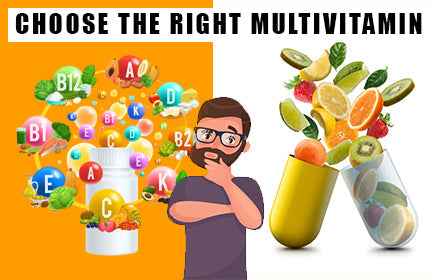Acid Reflux, Heartburn, GERD, Natural Remedies
Many people have heard of the terms acid reflux and heartburn and use them interchangeably. However, there are differences between the two conditions. In short, acid reflux is when your stomach acid moved into your esophagus and can range from mild to severe. Heartburn has nothing to do with the heart. Instead, heartburn is a mild to severe pain one feels in the esophagus or chest area. There is also a third condition called gastroesophageal reflux disease (GERD). GERD is just a more severe form of acid reflux.
In this article, I will describe and contrast these three conditions as well as review some natural ways you can relieve these symptoms.
Acid Reflux
Between the stomach and the esophagus, there is a muscle called the lower esophageal sphincter (LES). The LES tightens after food passes through the esophagus and into the stomach, and if this muscle is weak or does not tighten properly, the acid from your stomach can move backwards into your esophagus. As a result, acid reflux can cause someone to cough, have a sore throat, have a bitter taste in the back of their throat or mouth, or a burning and pressure that can extend up to the breastbone.
Heartburn
Since the esophagus’ lining is more delicate than your stomach’s lining, the acid in your esophagus can cause a burning sensation in your chest. Hence, the term, heartburn. This pain can feel sharp, but it can also feel like a burning or tightening sensation, and this typically happens after eating, bending over, or lying down. Heartburn is quite common, and it is estimated 60 million Americans experience heartburn at least once a month [1].
Now, I am not saying acid reflux and heartburn are not connected; they can be. The acid that enters your esophagus from the LES can cause heartburn, but there is a difference between the two conditions.
Gastroesophageal Reflux Disease (GERD)
If acid reflux occurs more than twice a week or causes inflammation in the esophagus, doctors will change the ailment from acid reflux to GERD. Therefore, GERD is the chronic form of acid reflux. Long-term damage caused by GERD can lead to esophagus cancer as well as other symptoms such as damage to one’s tooth enamel caused by excess stomach acid in the mouth, chest pain, asthma, and trouble swallowing. Holistically, the issues caused by GERD are much more severe than acid reflux.
If left untreated, GERD can cause serious issues such as esophageal bleeding, ulcers, scarring as well as the aforementioned esophageal cancer known as adenocarcinoma. GERD causes this cancer because the stomach acid changed the cells in the esophagus over time, and this is called Barrett’s esophagus. Barrett’s esophagus is when the cells in one's esophagus begin to look similar to the cells in their intestines, and that is not a good condition to have.
Now, I hope you understand the differences between acid reflux, heartburn, and GERD and how they are related.
Next, I will discuss conventional treatments for these symptoms and diseases as well as the new research about them.
Proton Pump Inhibitors (PPIs)
PPIs include omeprazole (generic version of Prilosec), Prevacid, Protonix, and Nexium. Studies have shown PPIs have serious side effects.
A 2015 cohort study found GERD patients who were exposed to PPIs have a 1.16-fold increased association with myocardial infarction, which is another term for a heart attack [2]. The study also found a two-fold increase in association with cardiovascular mortality [2]. Sometimes doctors will administer clopidogrel along with PPIs, and this association was found regardless of clopidogrel use [2]. The study concluded PPIs could have an adverse impact on cardiovascular function [2].
This association exists because PPIs seem to inhibit the enzyme activity of nitric oxide synthase in endothelial cells, cells that line the interior surface of blood vessels. Low levels of nitric oxide synthesis are known to increase vascular resistance and promote inflammation and thrombosis, also known as blood clots.
Natural Solutions
There are safer, natural solutions to heartburn, and in this section, we will review them.
- Try a Paleo diet. Dietary allergens such as dairy and wheat have been linked to GERD [3]. One study showed that the Mediterranean diet could decrease the risk of GERD [4]. Researchers examined instances of GERD among men and women in Albania and observed their food provided a beneficial effect against the occurrence of GERD [4]. To review good exampled of the diet, see reference [4] and read the abstract.
- Apple Cider vinegar has been shown to be beneficial. Some have noted positive effects of taking one tablespoon before meals or anytime heartburn arises.
- Do not drink fluids around mealtime. The water dilutes stomach acid, and issues such as GERD can result [5].
- Take digestive enzymes at the beginning of every meal. There are several types of digestive enzymes, including amylase, lipase, protease, and lipase. Each of these enzymes assist in breaking down specific substances. Studies have shown the role of enzyme supplementation in digestive disorders to be beneficial [6]. Healthmasters’ Digestive Enzyme Blend is a great digestive enzyme product with research backing, and I have spoken with many people who say it has helped them with acid reflux and heartburn. To read the research on Healthmasters’ Digestive Enzyme Blend, click here.
- Take betaine HCL at the beginning of meals. Many people have also stated betaine HCL supplementation has helped them with their GERD related issues. Healthmasters’ Gastragest contains betaine HCL as well as other ingredients to support a healthy PH with stomach acid, and the product has research backing. To read the research on Healthmasters’ Gastragest, click here. You can take both of Healthmasters' products together.
Conclusion
My goal in this article was to educate you on the differences and similarities between acid reflux, heartburn, and GERD, explain the adverse side effects of PPIs, and offer natural remedies for these issues.
If you have any questions about Healthmasters’ Digestive Enzyme Blend or Healthmasters’ Gastragest, feel free to call our office at 800.726.1834
References:
[1] https://gi.org/topics/acid-reflux/
[2] https://journals.plos.org/plosone/article?id=10.1371/journal.pone.0124653
[3] https://www.ncbi.nlm.nih.gov/pubmed/26257132
[4] https://www.ncbi.nlm.nih.gov/pubmed/26175057
[5] https://www.ncbi.nlm.nih.gov/pubmed/26408867?log$=activity

